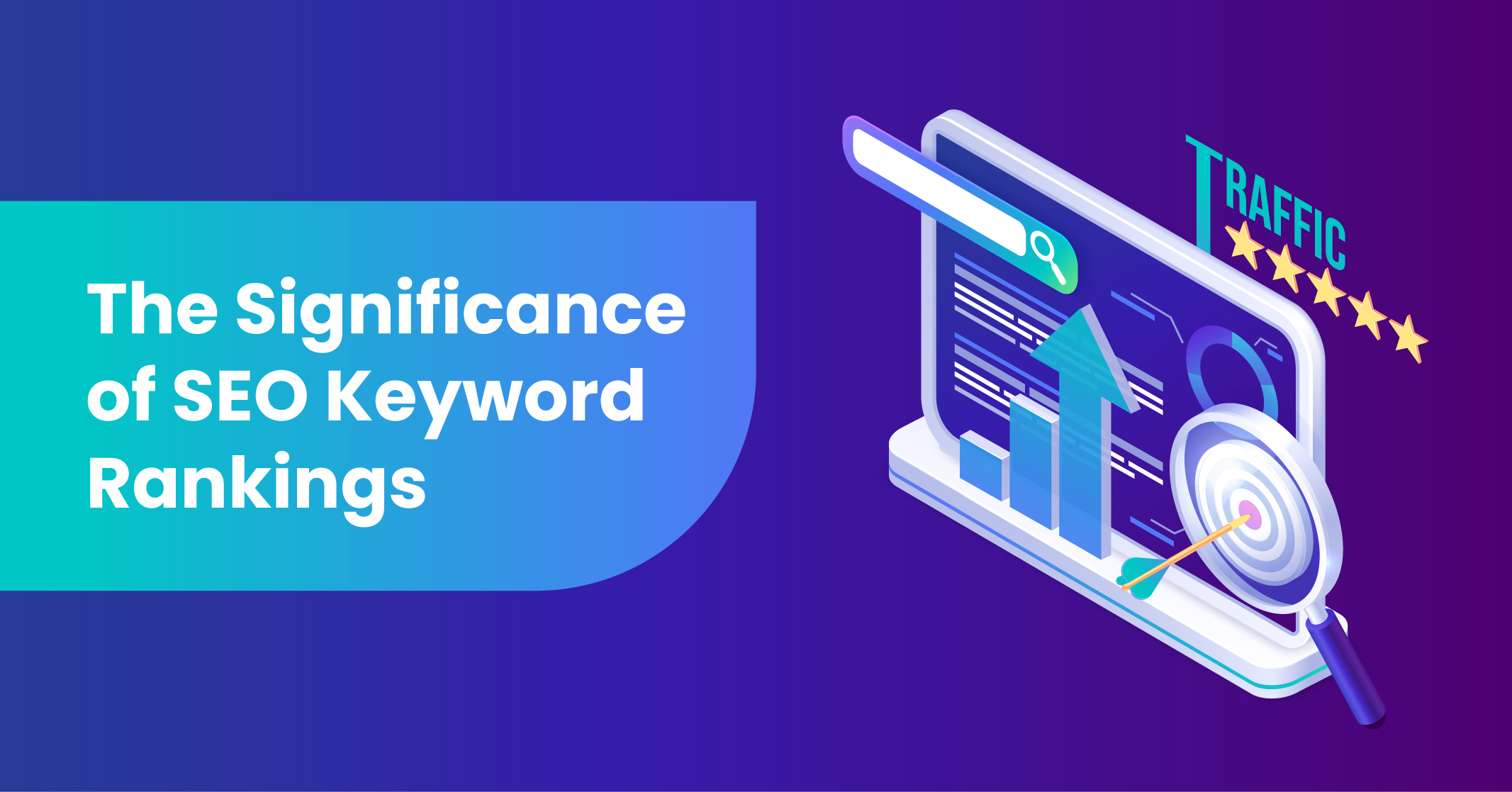I hope you enjoy reading this blog post.
If you want to get more traffic, Contact Us

Click Here - Free 30-Minute Strategy Session
Be quick! FREE spots are almost gone for this Month. Free Quote

Looking for more website traffic? It’s essential to focus on the right kind of traffic to drive revenue growth. Simply increasing traffic doesn’t guarantee increased revenue if you’re not reaching the right audience.
To attract better-quality traffic, prioritising high-intent keywords and improving your SEO keyword rankings is crucial. Why? Because the top-ranking result on Google receives an average click-through rate (CTR) of 27.6%, outperforming the 10th spot by 10 times.

Click Here – Free 30-Minute Strategy Session
Be quick! FREE spots are almost gone for this Month
So, where would you prefer to be when growing your business? The top spot holds the advantage.
In this article, we’ll explore how to check SEO keyword rankings work and guide you in choosing the right keywords for your content. We’ll also provide insights on improving your SEO keyword rankings for the results you desire.
Learn More: Top SEO Ranking Factors
In the realm of SEO, a “keyword” refers to the words or phrases people enter search engines like Google or Bing. The objective is for search engines to display results that align with the user’s intent. Your “keyword ranking” indicates your position in the search results for a particular search query.
Let’s cover some fundamental aspects of keywords:
Imagine you specialise in selling electric hand mixers and create a product category page for your offerings. It’s essential to consider the keywords people typically use when searching for your product. For instance, they might search for phrases like “buy electric hand mixer.”
For the search query “buy electric hand mixer,” the Google results display Food & Wine ranking higher than Best Products.
To improve your page’s visibility and ranking in search results, SEO, or search engine optimisation, comes into play. It involves optimising your content with the appropriate keywords. Now, let’s explore why this optimisation is crucial.
Here are some key insights about keywords:
For instance, if you sell electric hand mixers, consider the keywords users typically search for when looking for your product, such as “buy electric hand mixer.”
When searching for “buy electric hand mixer” on Google, you’ll notice that Food & Wine ranks higher than Best Products.
To improve your page’s visibility and ranking in search results, it’s crucial to engage in SEO or search engine optimisation. This involves optimising your content with the right keywords. Let’s explore why this optimisation is vital.

Organic search queries are a significant source of website traffic, accounting for approximately 53% of total traffic, according to recent data.
To capture this valuable traffic, it’s crucial to improve your SEO keyword rankings. However, it’s important to note that not all traffic is equal. To drive growth for your brand, you need traffic that converts into customers.
Securing the top spot for keywords that have the potential to boost your business is the goal. Achieving this requires a strategic approach to keyword selection and implementation within your digital marketing campaign. Allow me to guide you through the process.
Successfully ranking for multiple keywords involves effectively targeting and optimising your content to address multiple search queries simultaneously. It’s akin to SEO multitasking, where you aim to hit several targets with a single effort.
The key lies in maximising the efficiency of your content, rather than simply working harder. By doing so, you can attract increased traffic, gain greater visibility, and ultimately drive more conversions.
According to a study, pages that rank keywords first on Google for a keyword with a significant monthly search volume are likely to rank for other high-volume keywords as well. This suggests that there are common factors contributing to their success.
These top-ranking pages tend to have certain characteristics in common that help them achieve first-page rankings for multiple keywords. Factors such as longer content, strong URL ratings, and a substantial number of backlinks increase the likelihood of ranking well across various keywords.
However, the crucial aspect to consider is the commonality among the multiple keywords. During keyword research, it is important to identify shared words or themes among the keywords, as many successful pages tend to have at least one common word.
This emphasises the importance of selecting related keywords and avoiding the temptation to cover unrelated topics within a single post. Using a keyword clustering tool like SerpStat can assist in understanding how well keywords fit together.
For instance, one approach is to use soft clustering SEO, where keywords are loosely related, or hard clustering SEO, where keywords have a more direct relationship. Considering our target audience, it makes sense intuitively that trying to cover too many unrelated topics in one post would not effectively serve anyone.
To effectively incorporate multiple keywords in a single piece of content, it is best to group keywords that naturally complement one another. By focusing on cohesive and relevant keyword groupings, you can enhance your chances of ranking well for multiple search queries.

Selecting the appropriate keywords to boost your SEO rankings can be challenging. To simplify the process, here are some general factors to consider when choosing your keywords.
Search volume refers to the frequency with which users search for a specific keyword within a specified time frame. It serves as an indicator of a keyword’s popularity and level of competition.
It’s important to note that high search volume comes with the potential downside of attracting low-quality traffic.
Conversely, exclusively targeting keywords with very low search volume may result in insufficient traffic to drive conversions. It’s worth considering that even the top three results on a Google search engine results page (SERP) receive only 54.4% of clicks.
Cost-per-click (CPC) is a metric that measures the cost incurred for each click on a paid advertisement. It can be calculated by dividing the total advertising cost by the number of clicks generated.
When selecting keywords, you have the option to bid on them and set the maximum amount you are willing to pay for each click. Even if you are not running paid ads, understanding CPC can provide valuable insights.
Keywords with higher CPC values tend to indicate a higher likelihood of conversion, as brands are willing to invest more to appear in the search engine results pages (SERPs) for those specific terms.
On the other hand, a low CPC could suggest lower conversion rates for organic traffic or indicate lower competition for that keyword.
It’s important to note that the average CPC can vary across industries. For instance, keywords related to the travel industry typically have an average CPC of $1.63, while attorney and legal services keywords have an average CPC of $9.21. It is beneficial to refer to industry-specific CPC benchmarks to determine what CPC rates are considered high or low within your field.
If you plan to invest in paid advertising, it’s crucial to consider the following points:
SEO difficulty scores indicate the level of difficulty in achieving a high ranking for a specific keyword.
A lower difficulty score suggests that ranking for the keyword is relatively easier, but it could also indicate a lower search volume.
Conversely, a high SEO difficulty score indicates strong competition for the keyword, making it challenging to rank against prominent competitors. However, by creating superior-quality content, you can improve your chances of surpassing competitors and achieving higher rankings.
Paid difficulty refers to the level of ease or difficulty in achieving a high-ranking keyword search for a keyword in paid search results.
A high-paid difficulty implies that you will need to invest more money to rank for that keyword.
On the other hand, low-difficulty keywords are easier to rank for in paid search, but it’s important to consider their value and whether they are worth the investment.
Now that we have established the fundamentals, let’s explore the steps to follow when searching for high-quality keywords to achieve your digital marketing objectives.
To begin the keyword research process, gather content ideas by understanding the interests and needs of your target audience. Explore online platforms such as Reddit, Quora, and AnswerThePublic for valuable insights. These platforms provide a wealth of information as users ask questions and seek assistance.
Look for recurring questions across multiple platforms, as they indicate popular and relevant topics for your audience. Compile a list of these topics, noting the questions themselves, as they can potentially be used as effective keywords in the future.
After identifying the topics, it’s time to generate keyword ideas, and this is where tools like Ubersuggest prove valuable. Ubersuggest provides insights into the most profitable keywords related to your chosen topics, helping you prioritise your efforts effectively.
The tool also allows you to analyse the keywords that your competitors are ranking for, enabling you to learn from their strategies and work towards surpassing them.
Additionally, conducting regular SEO audits once your content is live can help identify any performance issues that need to be addressed and optimised for better results.

Now that you have generated keyword ideas and gained inspiration for your content, it’s important to select the most appropriate keywords for your topics. Ubersuggest is a valuable tool in this process. In the Keyword Overview section of Ubersuggest, you can access crucial information about your chosen keywords, including their CPC (cost-per-click), search volume, and difficulty score. This data helps you assess the potential value and competitiveness of the keywords.
To further refine your keyword selection, scroll down to the Keyword Ideas section in Ubersuggest. Here, you can explore related keywords that can complement your primary keywords and provide a variety of options. It’s advisable to include a mix of keyword types such as questions, comparisons, and short phrases to enhance diversity and increase your chances of ranking well.
Add the chosen keywords to your list and compare the data to make informed decisions. Once you are satisfied with your selected keywords, you can proceed with creating your content.
To increase your chances of achieving a top ranking for your desired keywords, here are five actionable tips to enhance your SEO keyword rankings.
Featured snippets refer to answer boxes that appear prominently at the top of search engine results pages (SERPs). They have gained significant popularity, with research indicating that around 19 percent of keywords have a featured snippet, which often occupies the number one position on the SERP.
From an SEO keyword ranking perspective, it is observed that featured snippets are more frequently associated with question-based keywords. Choosing long-tail or question-based keywords and providing authoritative answers to them can greatly enhance your chances of securing a featured snippet position. Utilising tools like Ubersuggest can assist you in selecting the most appropriate keyword for this purpose.
To optimise the effectiveness of your primary keyword, it is essential to strategically incorporate it throughout your website.
Ensure that your page title includes the primary keyword, as this helps Google comprehend the main topic of your page. Additionally, consider including the primary keyword and relevant variations in subheadings to further enhance keyword relevance.
Including the primary keyword in the opening paragraph is also considered a best practice.
However, it is crucial to avoid excessive keyword usage, as it may be seen as keyword stuffing, which can negatively impact your SEO keyword rankings. Maintaining a balanced and natural use of keywords is key.
A meta description serves as a concise summary of a webpage’s content. When optimised effectively, it explains the page’s purpose, attracting more relevant and targeted traffic.
For instance, when searching for “Traffic Radius” on Google, his homepage appears with a meta description that communicates what his website offers and helps visitors understand what to expect upon visiting.
To optimise your meta descriptions, consider the following tips:
By following these guidelines, you can enhance the effectiveness of your meta descriptions and entice users to click through to your website.
To facilitate the indexing of your additional keywords by Google, it is beneficial to incorporate them into the structure of your content using subheadings.
Assign each keyword its own H2 or H3 tag, as this aids both Google’s bots and readers in comprehending the purpose of your content.
Employing heading tags in your SEO content not only assists with the content organisation but also enhances readability by breaking up long-form content, making it easier for readers to skim and navigate through the information.
Optimising your page loading speed is crucial for achieving higher conversion rates. According to research conducted by Portent, it is recommended that your page loads in four seconds or less. The study found that for every additional second, it takes for a site to load, e-commerce conversion rates drop by an average of 0.3 percent.
Furthermore, approximately 82% of websites currently have a load time of five seconds or less, making it important to strive for faster loading speeds to remain competitive.
Slow loading times can lead to increased bounce rates, which can negatively impact your SEO keyword rankings. To enhance page performance, consider utilising page speed testing tools like PageSpeed Insights. By analysing your current page speeds and adjusting such as compressing images, removing unnecessary plugins, and implementing caching techniques, you can reduce load time and improve overall user experience. Regularly check your page speeds and compare the results to ensure optimal performance.
You can also use Google Keyword rank checker to check your SEO keyword rankings.
Anchor text refers to clickable text that directs readers from one page to another. It plays a crucial role in providing context for the linked page.
To adhere to Google’s recommendations, it is advisable to use concise anchor text consisting of a few words. Research by The HOTH suggests that approximately 50 percent of your inner page anchor text should include variations of your target keywords.
To avoid keyword stuffing, aim to use different keyword variations as anchor text across your inner pages. However, it is essential to prioritise readability and avoid forcing exact keyword matches. Additionally, keep URL anchors brief and concise for a better user experience.
Paid SEO rankings involve paying for ad placement in search engine results, while organic SEO rankings focus on improving search page positioning naturally through effective SEO strategies.
Several SEO tools, such as Google Search Console or Ubersuggest, can be used to track your keyword rankings and performance.
The primary factors influencing Google keyword rankings include search intent, search volume, content quality, backlink quantity, domain authority, and page loading speed.
To discover SEO keywords for your website, consider using tools like Ubersuggest, Google Trends, and Ahrefs Keywords Explorer. Experimenting with multiple tools can provide a comprehensive analysis.
For optimal keyword selection, aim for keywords with lower difficulty scores. On average, a score between 20 and 35 is considered low, 36 to 50 falls in the moderate range, 51 to 65 is considered difficult, and 66 to 80 is viewed as highly challenging.
Achieving the top spot in Google search results is crucial for maximising conversions and revenue. That’s why your SEO keyword ranking holds immense significance. Without a high-ranking keyword search, you may attract traffic, but it might not consist of the most valuable potential customers.
At Traffic Radius, we understand the importance of selecting the right keywords and ensuring your content appears prominently on the search page. We recommend trying out the SEO keyword tools we’ve suggested to optimise your rankings.
If you require additional assistance, our team is here to support you every step of the way. Feel free to reach out to Traffic Radius for expert guidance and support in boosting your SEO keyword rankings.

LEAVE A REPLY